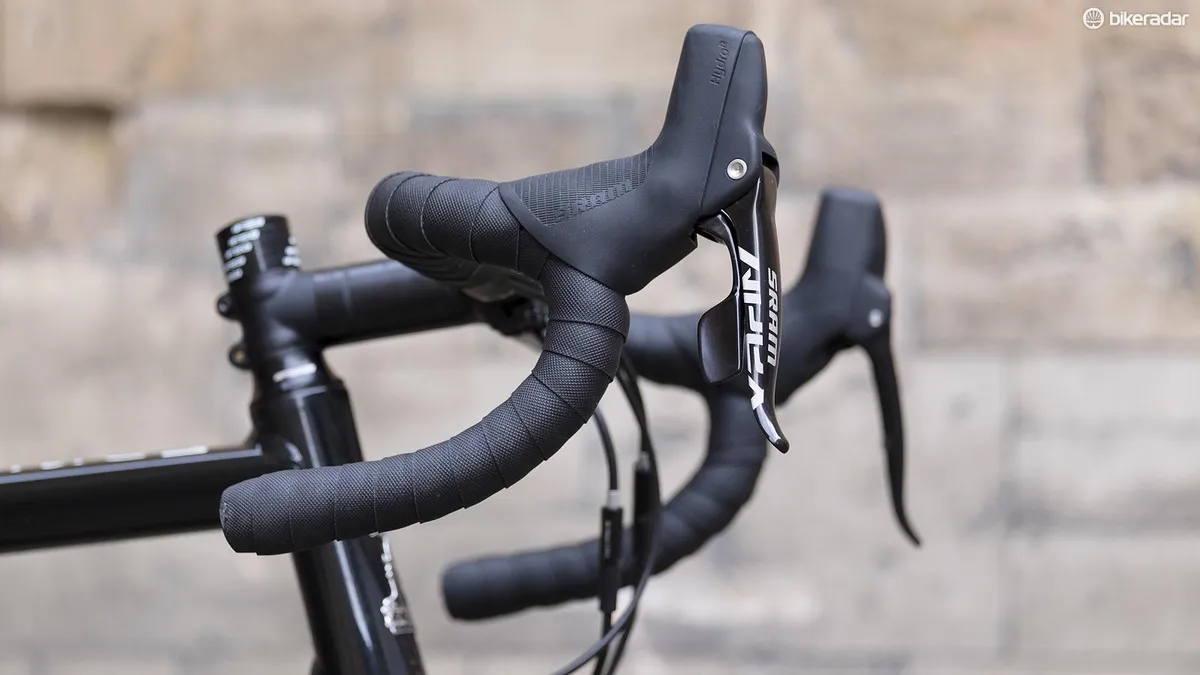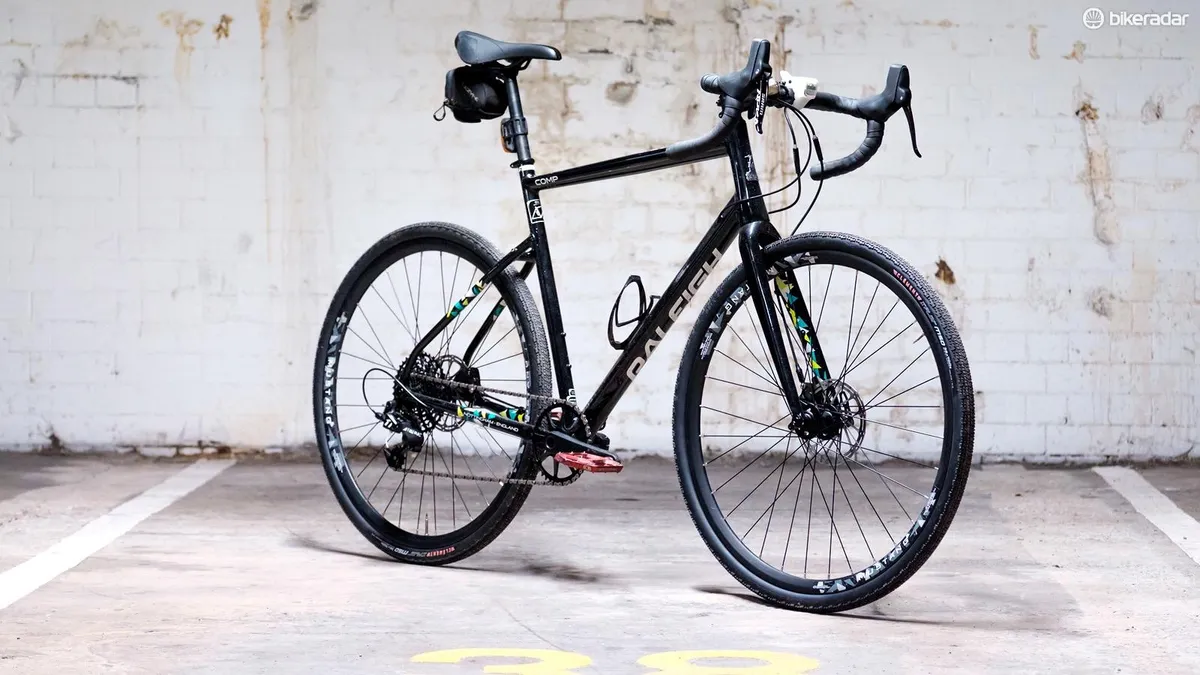The Mustang Comp is Raleigh’s top spec adventure rig, it’s proven itself to be a capable bike both on and off the road, but its ride quality doesn't surpass most competitors in this sector.
I liked Raleigh’s previous Mustang, it was a worthy effort into the gravel sector for the heron-crested brand. This 2018 model introduces a different frame design, there are now dropped chainstays and the swoopy front triangle of the old frame has gone.

Five frame sizes are available, and I tested the largest, which at 58cm wasn’t quite big enough for me. So taller riders beware, at 6ft 3in and not with particularly long legs, I had to run the seatpost at its minimum insertion mark.
With the exception of its chainset, the Mustang Comp arrives kitted out with SRAM’s Apex 1 groupset, that means one chainring at the front and — thanks to SRAM’s unique doubletap shifting arrangement — only one shift lever at the handlebar.
This is perfect for beginners, who can often be left confused by front derailleurs. It’s fair to say the shifters lack the finesse of those provided by Shimano parts, though this clunky action never leaves you wondering if you’ve missed a shift.

Another major upside to this setup is the way it keeps the drivetrain taut regardless of what’s happening at the back wheel. To be frank, unless there’s a setup problem, you’re unlikely to ever drop the chain.
The 11-42t Sunrace cassette provides enough range to get you up the steepest climbs but doesn’t leave the bike undergeared for road use. Its single 40t chainring is likely to hurt those who are used to a front derailleur though, at least on longer rides.
Another bonus of the Apex group is its excellent hydraulic disc brakes, these were a real delight to use and put powerful, predictable power at my fingertips.

Despite the frame being a touch on the small side I really felt as if I could get comfortable on the Mustang, particularly once I’d taken some height out of its lanky head tube.
Its slack (for the segment) 71-degree head tube and generous 440mm chainstays mean the bike naturally descends with confidence. In general, I’d say it’s a ride that prioritises stability over agility. Combine this with the generous 36mm footprint of its Clement X’Plor tyres and you end up with a bike that never really surprises.
The tyres are happy at anywhere between 40psi and 60psi of pressure, run them at their max and you’ll feel just how stiff this chassis can be. I found that around 50psi was a happy medium for my cross-country commute. Enough to smooth out the undulations of a badly surfaced road but not enough to noticeably slow straight line progress or threaten pinch flats.

One annoyance was the frame’s internal cable routing, which at times would rattle about. It's likely nothing that a cable tie or two couldn't sort, but is still disappointing.
The Mustang is a decent choice for mixed commutes and — providing your skills are on point — should allow good progress on less gnarly mountain bike trails.
There's no doubt this is a very capable bike, but it's one that I never really found exciting to ride, and that's not something I can say about my Norco Search Long-term test bike, which happens to costs a similar amount and weighs about the same. For me, that just about says it all.





